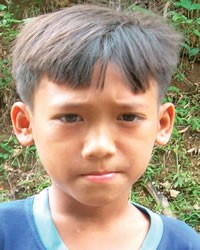Bentong in Indonesia

Photo Source:
Copyrighted © 2026
Anonymous All rights reserved. Used with permission |
Send Joshua Project a map of this people group.
|
| People Name: | Bentong |
| Country: | Indonesia |
| 10/40 Window: | Yes |
| Population: | 27,000 |
| World Population: | 27,000 |
| Primary Language: | Bentong |
| Primary Religion: | Islam |
| Christian Adherents: | 3.00 % |
| Evangelicals: | 0.36 % |
| Scripture: | Translation Started |
| Ministry Resources: | No |
| Jesus Film: | No |
| Audio Recordings: | No |
| People Cluster: | Bugi-Makassar of Sulawesi |
| Affinity Bloc: | Malay Peoples |
| Progress Level: |
|
Introduction / History
The Bentong people are known as "To Bentong". They are located inland about 2 hours from Makassar, capital of South Sulawesi Province. According to the Bentong, they are the descendents of a marriage between the prince of Bone and the princess of Ternate. Other sources state that the Bentong are the descendents of Bugis and Makassar peoples. This is likely since Bentong culture is influenced by elements of both the Bugis and Makassar cultures. Bentong are nomads and are considered an "isolated" society by the government. The Bentong language is part of a larger linguistic grouping called the Makasar which also includes the Konjo Pesisir (Konjo - coastal), Konjo Pegunungan (Konjo - highland), Selayar, Makasar and Selayar.
What Are Their Lives Like?
The Bentong live in a hilly area 400-500 meters above sea level. This area is marked by dense forest underbrush, with limited land available for both irrigated and non-irrigated rice fields. There are no major roads in this area, only narrow footpaths that connect to the outside world. By and large, the Bentong live as farmers and fishermen. Their primary crops include dried coconut meat (kopra), rice and various forest products. The Bentong marriage system calls for marriages among people of the same group. A young man desiring to marry a woman outside his own group must remember that he has a duty to give preference to a woman within his own group. In their tradition, the groom gives a dowry. In the past, this dowry took the form of land or cloth. After getting married, newlyweds may live near either the groom's or the bride's family.
What Are Their Beliefs?
The Bentong are followers of Islam. Marriage and burial ceremonies are done in accordance with Islamic laws. Nevertheless, elements of traditional beliefs are still maintained, namely belief in ancestral spirits, sacred objects and sacred locations. This system of worship is referred to as arajang. They believe this system will bring safety and it must be done to avoid being cursed. Arajang objects such as a keris (traditional ceremonial knife), spear, shield, umbrella and the like are only brought out at certain times for worship, specifically at the king's inauguration, marriage ceremonies and natural disasters. Other forms of worship involve showing respect to the pantansa (a small yellow house that symbolizes the gods). This ceremony is conducted in the rice fields during the planting season and is led by the pinati (a traditional healer/shaman who acts as a mediator between humans and the ancestral spirits).
What Are Their Needs?
The Bentong need help in management of commerical farming so they can achieve more significant yields. They also need better education, since neither Bentong adults nor children have had many educational opportunities. The Bentong need adequate healthcare as well as healthcare education. They regard cleanliness as a hindrance to their daily activitites. As a result, many Bentong are sick with malaria, dysentery, diseases of the skin and eyes and other illnesses.
Prayer Points
Pray for the Berta people to look to the Lord for all their physical and spiritual needs and find Christ faithful.
Pray for spiritual hunger that will give them hearts that seek after God.
Pray for disciple making workers who will teach Berta believers to make more disciples.